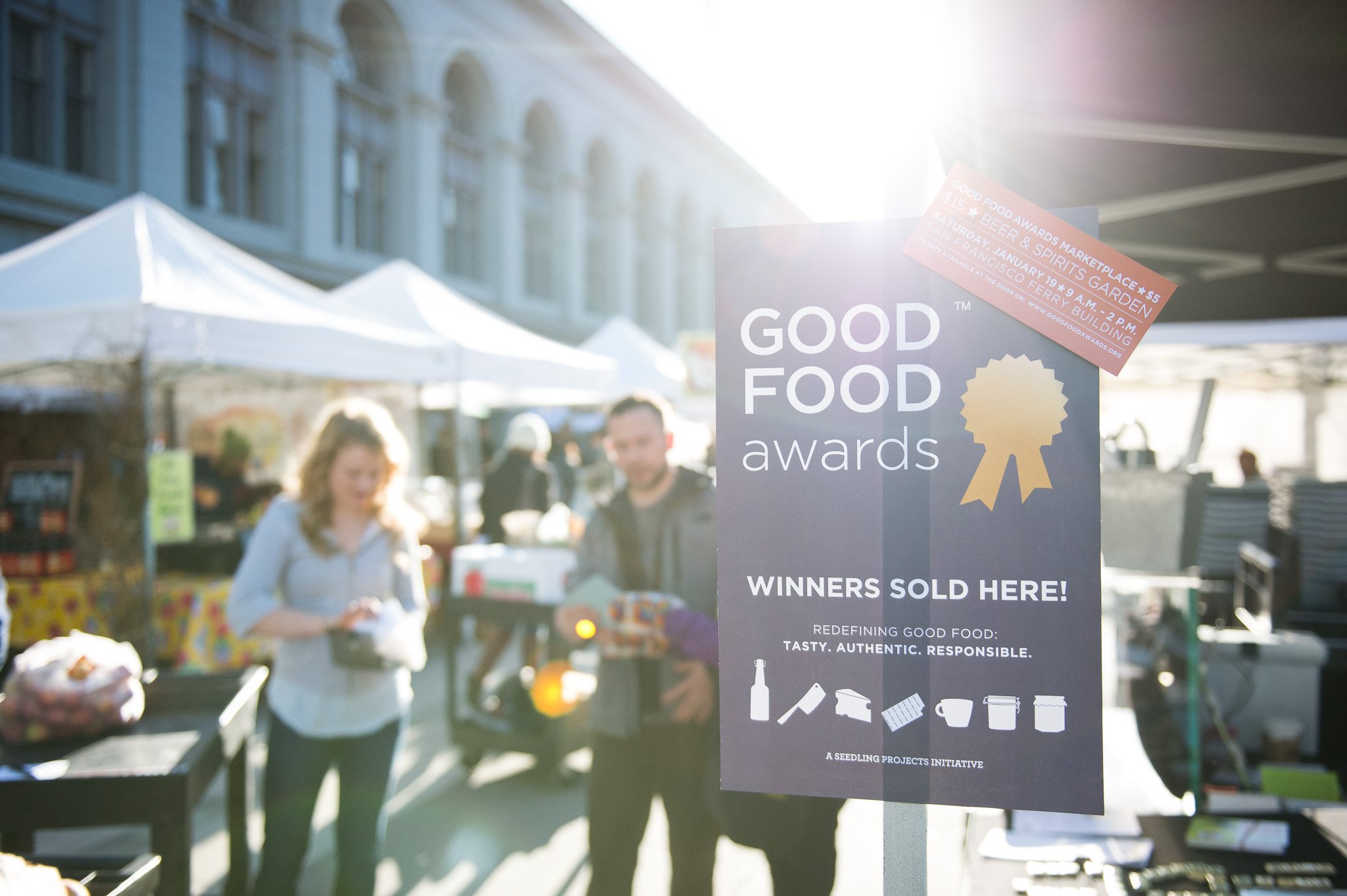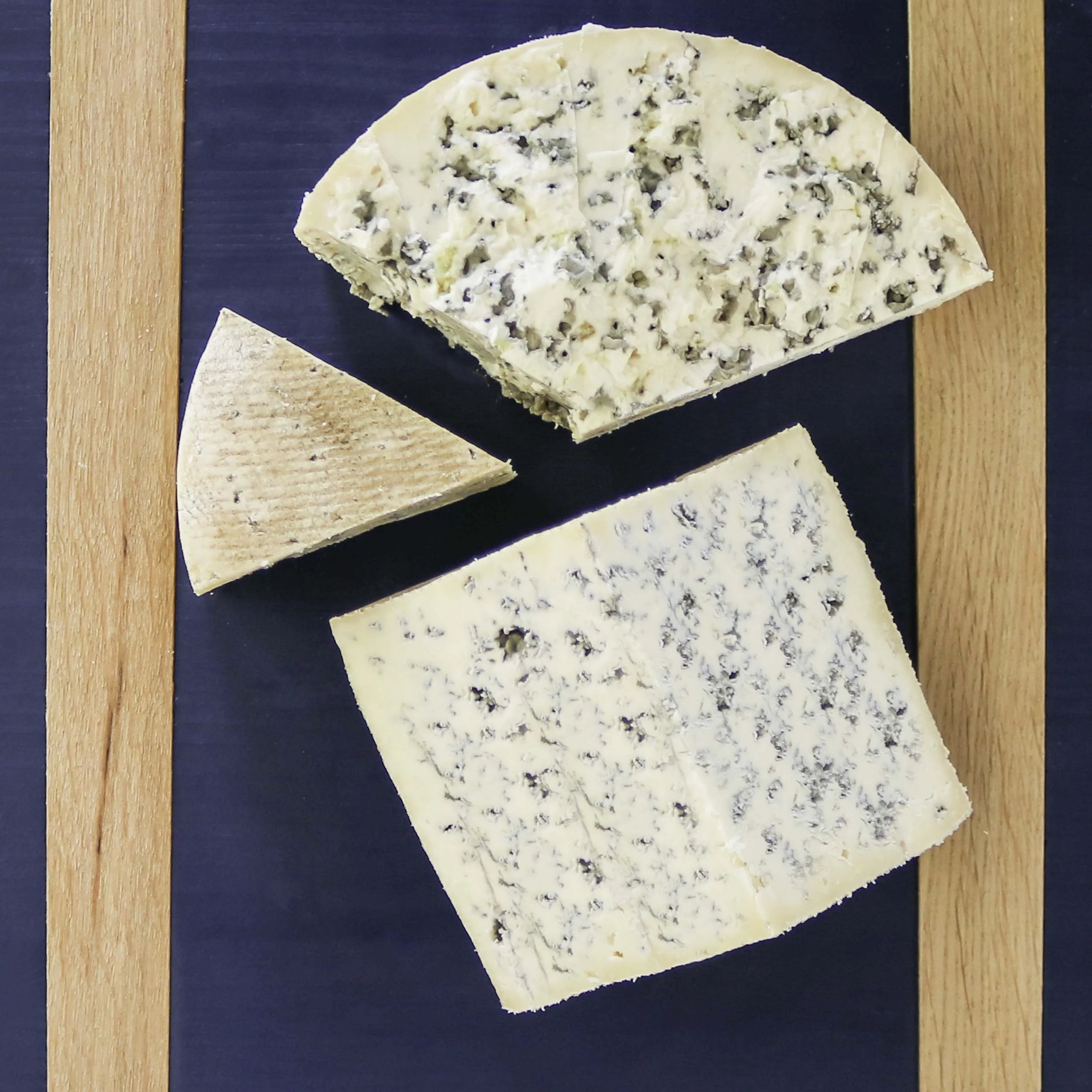I Was an Informant for the Good Food Awards Cheese (2024)
Editor’s note: The very notion of “vegan cheese” upsets a lot of people. We get it. But as long as there is demand, it’s not going away. Our thanks to cheesemonger Gordon Edgar for sharing the inside scoop on the latest controversy.
Gordon Edgar
My name wasn’t in the Washington Post article about the recent vegan cheese kerfuffle, but I would have gone on record if they contacted me. I have to admit, I did literally laugh out loud when I saw I was anonymously mentioned as an “informant” in the latest article in the vegan/dairy cheese wars. It made it seem like what I did was secret and sordid as opposed to just doing my job as a buyer.
The story, if you haven’t seen it, as it has been portrayed has been that of the Big Arrival of Vegan Cheese. A vegan newcomer (supposedly) won a contest against the best cheese in the country and cheese judges crowned it as superior. Articles compared this to California wines winning the Judgement of Paris in 1976. Then the vegan cheese was stripped of its title. Was Big Dairy trying to kill the competition? Was something sinister afoot?
Nah.
GFA photo credit Marc Fiorito Gamma Nine
About the Good Food Awards
First of all, without dismissing the Good Food Awards (GFA), their competition is no Judgement of Paris. Without a doubt, high quality cheeses win their awards but within the cheese world their best function is about recognition of good taste and sustainability of cheese (and other foods) made in the United States. Much of the cheese world is ineligible or sees little value in the award, so it is a smaller pool of entrants than many other competitions and limited to a smaller geographical area. As a cheesemonger, I appreciate GFA as a marker of smaller production, environmentally-better cheeses, but don’t view it as much of a prestigious award as some other competitions. It is also a relatively newer competition. (I should mention here I have judged many cheese competitions including the Good Food Awards, though I did not judge this year. I am also on leave from the competition committee of a different cheese contest.)
As I understand it, GFA awards the title “Finalist” to high scoring cheeses in regional judgings and THEN vets them for sustainability etc. before announcing the “Winners” (five per region) at their annual event. One can debate whether this is a good practice – I would say it’s not -- but undoubtedly it saves a lot of work because, due to self-selection, it is usually not necessary. This is what came back to bite them here and what is causing so much confusion.
The state of vegan cheese today
Many of you reading know my cheese credentials – 30 years as a monger, written a couple of books, member of the Guilde Internationale des Fromagers — but I have some vegan ones as well. I really doubt if any store in the country has sold more vegan “cheese” than the one I work at over the last 30 years and I am the buyer. I have tried almost every vegan “cheese” that is sold commercially outside its hometown. I have also tried the Climax Blue.
My considered opinion, as someone who goes back to the days of nasty, crimped chubs of vegan cheese-substitutes that stuck like rubber cement to the shelves, is that the vegan “cheese” is clearly getting better. Once, its aspirations only reached as far as Kraft Singles or other processed cheese which had already been dumbed-down in flavor by big dairy companies who are not blameless here. Now it tries, and sometimes achieves, integrity as food. There is nothing wrong with fermented nuts and seeds. Whether or not they should be called cheese is a question for another article, but consumer taste is subjective and vegan customers certainly are happier than they used to be.
Which brings us to the Climax Blue.
Climax Foods Blue photo credit Climax Foods
What happened at the Good Food Awards
There seems to be a huge misunderstanding about this event. People seem to think that cheese judges tasted the Climax and not only didn’t know if was vegan, they thought it was better than all the other cheese in the competition. That is not what happened. Judges knew it was vegan because “milk” type is listed on every entry. In the WaPo article a judge is quoted as writing, “Very impressive for being vegan but obviously plant-based.”
Rogue River Blue photo credit Beryl Striewski
We got a sample of the Climax Blue about nine months ago. I hesitate to describe its taste in print because I lost my tasting notes, but it was great for its category. That category, of course, was vegan cheese alternatives, not blue cheese. We were going to bring it in to sell even though its retail price would be higher than any cheese we sold at the time. Even more expensive than the Rogue River Blue that was the first American cheese to win the World Cheese Awards, a moment actually similar to the Judgement of Paris. Read more about Rogue River Blue and why it’s worthy of the hype.
Then I asked for the ingredients.
In the US food-selling world, there is a term called Generally Recognized As Safe (GRAS). For our store, and most natural foods stores, buyers won’t buy foods with ingredients that are not GRAS I looked at the Climax Blue ingredient list and there was something I didn’t recognize: kokum butter. I looked it up and, while approved for cosmetics and for one specific confection, it was not on the GRAS list. So we rejected it. The person I was in contact with at Climax said they were going to re-formulate. I told them we would carry it when they did. My vegan coworkers are excited to eat it and it was one of the best vegan “cheeses” we have tried, up there with Uncreamery, Bandit, Rebel, and Future Hero Cave (ex-Punk Rawk Labs). Just like that judge at the competition wrote.
Point Reyes Bay Blue 2024 GFA winnner
With real cheese, there are basically four ingredients: milk, cultures, rennet, salt. This cuts to the heart of the main difference between cheese and vegan cheese alternatives. I found the term “plant-based” super confusing when I first heard it as an alternative to “vegan” because you cannot spend any time around traditional cheese makers without them discussing the plant-based diet of the ruminant they are using. Cheese is, at its core, just plants filtered through the medium of mammal.
So, when I heard that the Climax Blue was a finalist – amidst all the misleading hype of what that actually meant – the first thing I did was ask Climax if their product was ready for retail sale. When I was told they weren’t, I asked the Good Food Awards if they had checked the ingredient list. You don’t really need to do that with cheese, but you do with its substitutes. I am not privy to the discussions between Climax and GFA – again I have no connection to GFA – but it seems it didn’t go well for Climax. That GFA had no “must be GRAS” rule ahead of time isn’t evidence of a conspiracy. I assume that no one thought someone would have the audacity or arrogance to submit a product with a non-GRAS ingredient to a contest for “good food” in the first place!
Food technology companies & biotech foods
There is an aspect of new food technology companies that we don’t talk a lot about much. Not speaking of any one company here, but many of the venture capital-backed companies involved in tech food do not really have food production experience. They don’t know the practices of integrity in the food world, or how to package and label it correctly (“Yes, if your product says 4 oz. it needs to actually weigh 4 oz.”).
In some ways, biotech foods are an attack on the food movements that we have seen in this country since the 1960s. We are beginning a new era of the re-mystification of food. Knowing your farmer and/or cheesemaker is not really a thing when you are making “cheese” out of the oils of an anonymous assortment of crops. Many vegan companies proclaim some version of “made just like traditional cheese” but if you try to ask them to break down the process you are told that information is proprietary. Even in the 1800s, cheesemakers depended on the sharing of best practices and cooperation, in order to work together and improve the overall quality of cheese.
It’s not even a real question that, in the future, the Good Food Awards should have a separate category for vegan “cheese”. To be honest, that they didn’t was kind of inviting this kind of messy public fight to happen. There are about 10,000 years of cheesemaking history and, while certainly long histories of fermentation of all sorts of things, about 30 for vegan “cheese’. On that scale, vegan “cheese” is doing a tremendous job. It is, however, very unlikely to be confused with the traditional thing. And definitely not by anyone who works in cheese professionally.





